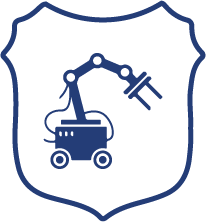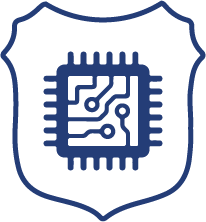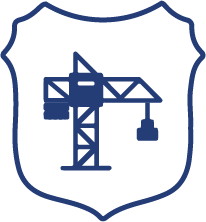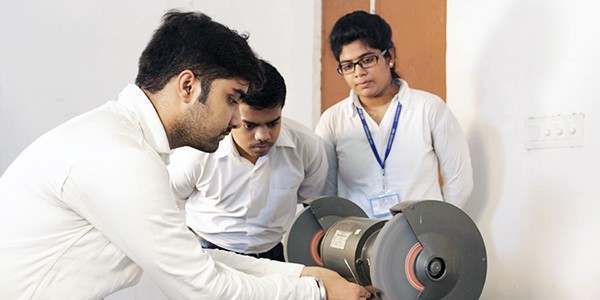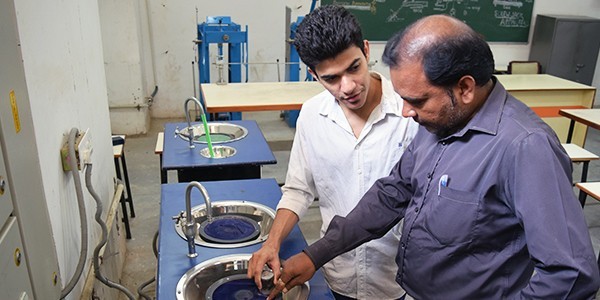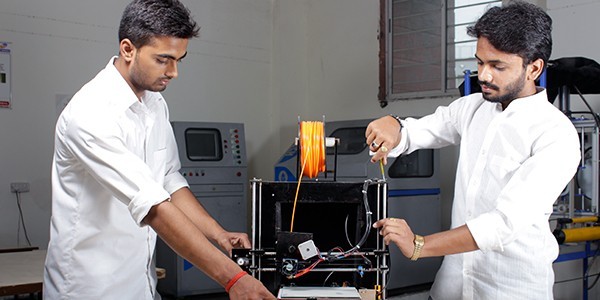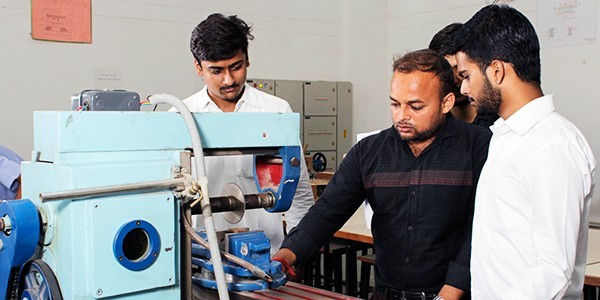B. Tech – Mechanical Engineering
Educational Objectives
BBDU, the best B.Tech College in Lucknow, has been favouring Mechanical Engineering as a stream all this while. But why?
Mechanical Engineering (ME), the source and father of all engineering, has to be the most primary form of engineering we humans ever knew of. And today, as we have gone past so many barriers and have reached an era with surreal technological advancements, Mechanical Engineering has achieved a glorious position, producing top of the line engineers around the globe. The main advantage of being a mechanical engineer is that they have to be a part of all engineering processes like production, equipment, maintenance, etc.
With this fact, also comes the huge demand for quality mechanical engineers, and thus BBDU, the top Mechanical Engineering college in Lucknow, tries to meet this demand by providing the country with the best mechanical engineers, who:
- Have an elaborate and deep understanding of all pertinent engineering principles;
- Have a sound knowledge regarding the proper, and safe, practical application of these principles;
- Have a sense of moral duty and debt towards the country, and the world;
- Have a thirst for advancing the technical facilities with time to bring about a whole new era.
Opportunities For Mechanical Engineers
Mechanical engineers have many opportunities and work in every type of industry, in jobs ranging from research and development to manufacturing and operations. Mechanical engineers also work in product design, procurement, technical sales, and management.
Most mechanical engineers work for private companies or consultancies across a broad range of industries, including:
- Manufacturing
- Building and construction
- Building services
- Product development
- Energy
- Agriculture
- Water and waste water
- Aviation, boat building and transport
Program Outcomes
- Engineering Knowledge: Apply the knowledge of mathematics, science, engineering fundamentals and an engineering specialization to the solution of complex engineering problems.
- Problem Analysis: Identify, formulate, review literature and analyze complex engineering problems reaching substantiated conclusions using first principles of mathematics, natural science and engineering sciences.
- Design / Development of Solutions: Design solutions for complex engineering problems and design system components or processes that meet the specified needs with appropriate consideration for the public health and safety and the cultural, societal and environmental considerations.
- Conduct Investigations of Complex problems: Use research based knowledge and research methods including design of experiments, analysis and interpretation of data, and synthesis of the information to provide valid conclusions.
- Modern Tool Usage: Create, Select, and apply appropriate techniques, resources and modern engineering and IT tools including prediction and modeling to complex engineering activities with an understanding of the limitations.
- The Engineer and Society: Apply reasoning informed by the contextual knowledge to assess societal, health, safety, legal and cultural issues and the consequent responsibilities relevant to the professional engineering practice.
- Environment and Sustainability: Understand the impact of the professional engineering solutions in societal and environmental context and demonstrate the knowledge of, and need for sustainable development.
- Ethics: Apply ethical principles and commit to professional ethics and responsibilities and norms of the engineering practice.
- Individual and Team Work: Function effectively as an individual and as a member or leader in diverse teams and in multidisciplinary settings.
- Communication: Communicate effectively with the engineering community and with society at large. Be able to comprehend and write effective reports documentation. Make effective presentations, and give and receive clear instructions.
- Project management and finance: Demonstrate knowledge and understanding of engineering and management principles and apply these to one’s own work, as a member and leader in a team. Manage projects in multidisciplinary environments.
- Life-long learning: Recognize the need for, and have the preparation and ability to engage in independent and life-long learning in the broadest context of technological change.
Program Specific Outcomes
- An ability to identify, analyze and solve engineering problems relating to mechanical systems together with allied engineering streams.
- An ability to build the nation by imparting technological inputs and managerial skills to become technocrats and entrepreneurs, build the attitude of developing new concepts on emerging fields and perusing advanced education.
Syllabus
Engineering Courses
Labs
- Production Laboratory
- Design Laboratory
- Materials Testing Laboratory
- Thermal and Fluid Laboratory
- Basic Workshop
- Mesurement & Metrology Lab
- Experimental Stress Analysis Laboratory


